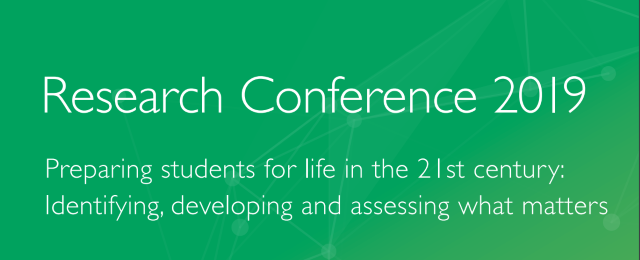
Monday 5 August 2019
Start Date
5-8-2019 1:15 PM
End Date
5-8-2019 2:15 PM
Subjects
Early childhood education, Social development, Emotional development, Interpersonal competence, Generic skills, Play based learning, Curriculum frameworks, Measures, Measurement techniques, Young children
Abstract
Early childhood education and care (ECEC) settings are naturally oriented towards promoting 21st century skills. This can be seen in Australia, where learning is defined as the development of identity, social and emotional skills, problem-solving, and communication skills. A 21st century orientation is also seen in the playbased pedagogies implemented in ECEC settings. A gap, however, exists in the ability of the ECEC sector to communicate its successes. This gap relates to the lack of measurement tools to quantify the quality of the adult–child interactions in ECEC settings, and children’s growth in these 21 century skills and abilities. This paper presents evidence on the assessments available to measure children’s social and emotional skills and concludes, that while there are assessment tools available to Australian ECEC educators, there is an immediate need to develop new tools that support educators to collect evidence of their impact and to quantify children’s growth. This would have the benefit of developing a common language to understand the skills and abilities being fostered in ECEC settings, and support more effective communication with the school sector.
Recommended Citation
Cloney, D., & Picker, K. (2019, August 05). What can early childhood education and care settings teach us about skills for the 21st century? [Paper presentation]. Research Conference 2019 - Preparing students for life in the 21st century: Identifying, developing and assessing what matters. https://research.acer.edu.au/research_conference/RC2019/5august/10
Recommended Citation (OVERRIDE)
Cloney, D., Picker, K. (August 2019). What can early childhood education and care settings teach us about skills for the 21st century? In K. Cockle (Ed.), Research Conference 2019: Preparing students for life in the 21st century: Identifying, developing and assessing what matters: Proceedings and Program: 4–5 August 2019, Melbourne Convention and Exhibition Centre. (pp.83-88). Melbourne: Australian Council for Educational Research. https://research.acer.edu.au/cgi/viewcontent.cgi?article=1360&context=research_conference
Early childhood education and care skills for the 21st century presentation
Copyright Statement
Copyright Australian Council for Educational Research 2019
Place of Publication
Melbourne, Australia
Publisher
Australian Council for Educational Research (ACER)
ISBN
9781742865546
Included in
Early Childhood Education Commons, Educational Assessment, Evaluation, and Research Commons, Personality and Social Contexts Commons
What can early childhood education and care settings teach us about skills for the 21st century?
Early childhood education and care (ECEC) settings are naturally oriented towards promoting 21st century skills. This can be seen in Australia, where learning is defined as the development of identity, social and emotional skills, problem-solving, and communication skills. A 21st century orientation is also seen in the playbased pedagogies implemented in ECEC settings. A gap, however, exists in the ability of the ECEC sector to communicate its successes. This gap relates to the lack of measurement tools to quantify the quality of the adult–child interactions in ECEC settings, and children’s growth in these 21 century skills and abilities. This paper presents evidence on the assessments available to measure children’s social and emotional skills and concludes, that while there are assessment tools available to Australian ECEC educators, there is an immediate need to develop new tools that support educators to collect evidence of their impact and to quantify children’s growth. This would have the benefit of developing a common language to understand the skills and abilities being fostered in ECEC settings, and support more effective communication with the school sector.

